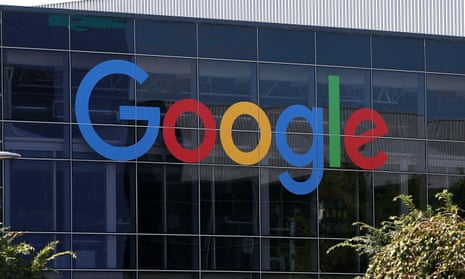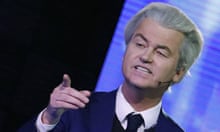Google has promised a wide-ranging overhaul of its advertising policies in response to a growing boycott of the company’s platforms from leading brands and advertisers including the UK government, Marks & Spencer and McDonald’s.
In a blogpost published on Monday night, Philipp Schindler, the company’s chief business officer, wrote: “We have strict policies that define where Google ads should appear, and in the vast majority of cases, our policies and tools work as intended. But at times we don’t get it right.
“Recently, we had a number of cases where brands’ ads appeared on content that was not aligned with their values. For this, we deeply apologise.”
Many of the companies involved in the boycott had discovered that their advertising spend was being used to place banner adverts over YouTube videos from groups such as Britain First, indirectly funding extremists and damaging the prestige of their brands.
In response, Schindler has promised a three-tier overhaul of Google’s advertising policies, both on YouTube and on the company’s wider ad products.
First, Google itself is going to tighten its policies around what can live on its platforms, and what subset of that content can support advertising on it. “Starting today, we’re taking a tougher stance on hateful, offensive and derogatory content,” Schindler says. The company is also ensuring that fake creators – those who impersonate other channels – can’t host advertising. Schindler also says YouTube is “taking a hard look” at existing community guidelines to see if any content is allowed on the platform that shouldn’t be, though no action is promised.
Second, the company is promising better controls for advertisers to choose where their money goes, and to prevent accidentally spending it on hateful content. The default options for advertisers will be tightened, to exclude “potentially objectionable” content from the off. Advertisers themselves will be given account-level tools to exclude specific sites and channels from all of their campaigns at once, as well as more fine-tuned controls for when advertisers need specific say over where their ads appear.
Third, Schindler writes that advertisers and agencies will be offered “more transparency and visibility on where their ads are running”. That should help advertisers avoid awkward situations like those that prompted the boycott in the first place, where advertisers only discovered their ads were showing up on extremist content after a Times report. The Google executive also promises to hire “significant numbers of people”, as well as bring in new AI-powered tools, to increase the company’s capacity to review questionable content for advertising.
Google’s new offering comes after a rare apology from the company. Its UK head, Matt Brittin, told the Advertising Week Europe conference in London that “When anything like that happens, we don’t want it to happen, you don’t want it to happen, and we take responsibility for it … So I want to start by saying sorry. We apologise.”
It is not yet clear whether the new measures go far enough to reassure advertisers. Tesco, Toyota and Volkswagen became the latest major brands to suspend advertising, joining the BBC, L’Oréal, HSBC, Royal Bank of Scotland, Lloyds, Audi, Channel 4 and the Guardian on a list that now features some 250 firms.
The company’s role in funding extreme content has come under scrutiny, in part prompted by the victory of Donald Trump in 2016’s US election. That led to a focus on so-called “Fake News”, many of the purveyors of which rely on Google’s advertising products for monetising their hoax content. A grassroots campaign, Sleeping Giants, has also begun directly pressurising advertisers in the US and Europe to pull their spend from “racist websites”, with a particular focus on the far-right outlet Breitbart.









